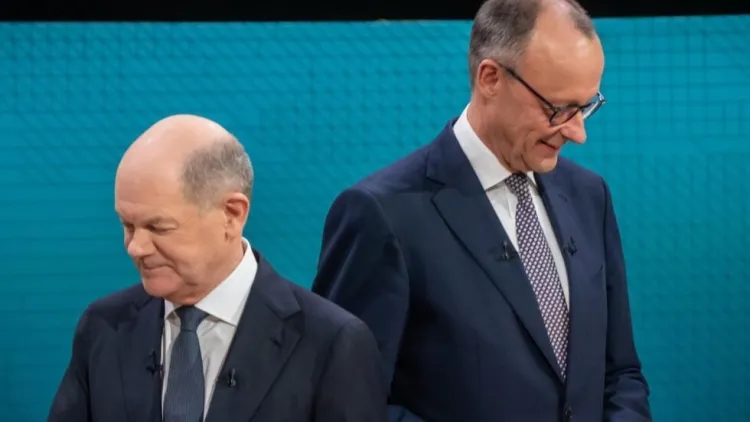German Chancellor Rejects US VP's Remarks on Immigration and Free Speech Ahead of February Elections
As German Chancellor faces elections on February 23, she strongly rebuffs US VP's comments on European immigration policies and free speech, defending Germany's stance against far-right politics.

As Germany heads toward its crucial elections on February 23, Chancellor Angela Merkel's government is confronting intense scrutiny, especially regarding European immigration policies and free speech. In a sharp response to US Vice President Joe Biden's recent remarks, the Chancellor delivered a robust defense of Germany's stance on these issues, particularly rejecting the influence of foreign powers on Europe’s internal matters.
Merkel’s Strong Rebuff of Biden's Criticism
The German Chancellor took to the stage to challenge US Vice President Biden’s recent comments regarding European policies on immigration and the regulation of free speech. Biden had criticized what he saw as the increasing censorship of free speech and the rise of far-right movements in Europe. In particular, Biden attacked Germany's strong resistance against the far-right Alternative for Germany (AfD) party, calling it a major setback for freedom of expression across the continent.
Merkel, however, was quick to defend Germany's position, emphasizing that it was not for foreign leaders to interfere in Germany’s policies. She underscored Germany's taboo against cooperating with extremist political groups, specifically referring to the AfD’s history of downplaying Nazi atrocities. Merkel's administration has consistently refrained from offering any support to the AfD, which she described as unacceptable due to its controversial stance on historical issues.
Biden’s Remarks and the Far-Right in Germany
Vice President Biden’s remarks were made ahead of the 61st Munich Security Conference, where tensions around European far-right politics have been mounting. In his speech, Biden warned that free speech was increasingly under threat, accusing European governments, including Germany’s, of silencing dissent, particularly when it comes to extremist viewpoints. He also raised concerns about the perceived influx of immigrants into Europe, emphasizing that no European citizen had voted for what he described as the "floodgates to millions of unvetted immigrants."
Despite these criticisms, Germany’s political climate remains fiercely divided over the rise of the AfD, which has gained significant traction, particularly due to its anti-immigration stance.
Election Polls and the Rise of the AfD
In the lead-up to the February elections, the political landscape in Germany is heating up. The conservative CDU-CSU bloc is leading the polls with approximately 30% support, while Merkel's Social Democrats (SPD) trail behind at 15%. However, it’s the AfD that is making the most significant gains. The party is expected to achieve its best-ever result, pulling in a projected 20% of the vote.
Despite its growing popularity, the AfD remains an outcast among Germany's major political parties due to its nationalist rhetoric, which clashes with the country’s post-WWII commitment to combat ultra-nationalist ideologies.
The Role of Elon Musk and Tech Support
Adding to the complexity of the situation is the involvement of high-profile figures such as tech billionaire Elon Musk, a prominent ally of former US President Donald Trump. Musk has reportedly expressed support for the AfD, lending the party a level of international backing that further fuels the political debate in Germany.
Conclusion: Tensions Ahead of the Elections
As Germany approaches its election date, the nation faces critical choices that will determine the future direction of its immigration policies, free speech regulations, and its stance toward far-right movements. Chancellor Merkel’s rejection of foreign interference in Germany's internal affairs highlights the deep-rooted tensions surrounding these issues, which will play a pivotal role in shaping the election outcomes. As the AfD rises in popularity, the debate over Germany’s relationship with its past, its approach to immigration, and the freedom of expression will continue to dominate political discourse.
What's Your Reaction?















